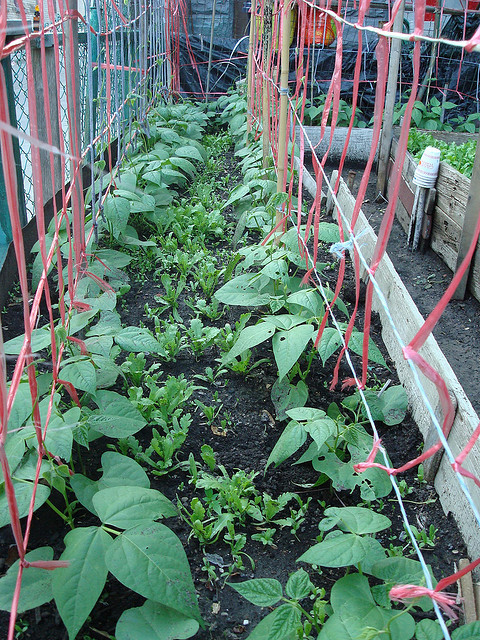Please help rabble.ca stop Harper’s democratic demolition. Become a monthly supporter.
Economists and politicians who place scarcity and austerity foremost in public discourse are making the world a depressing place, indeed. Cutthroat competition to extract private gain from the last few ounces of natural resource wealth, skyrocketing levels of economic inequality, mountains of toxic wastes, climate disruption: conventional economics is a dismal failure.
A 2009 historical review by Roger Backhouse and Steven Medema (Retrospectives: On the Definition of Economics) documents the shift from “wealth” to “scarcity” as a central preoccupation of economists.
Lionel Robbins, during the Great Depression in 1932, redefined economics as “the science which studies human behavior as a relationship between ends and scarce means which have alternative uses.”
According to Backhouse and Medema, other economists felt this definition was “too heavily tilted to theory and left little, if any, room for empirical analysis, history and institutions — and it essentially wrote ethics out of economics.” But it has become the dominant view.
Yet curiously, while economists emphasize scarcity and efficient use of resources, they unceasingly promote economic growth as the be-all and end-all of human society
We need fresh thinking. Joan Martinez-Alier, Professor of Economics and Economic History at the Autonomous University of Barcelona, and past president of the International Society for Ecological Economics, is providing thought-provoking alternative views. In “Crisis or opportunity? Economic degrowth for social equity and ecological sustainability,” he and his colleagues summarize papers from an April 2008 Paris academic conference on degrowth.
Authors delayed publication of their conference papers to reflect on lessons of the 2008 global “fiscal crisis” and government responses to it. They concluded that “irresponsible borrowing and the cultivation of fake expectations in the housing market were not accidents, but a systematic failure of a system struggling to keep up with growth rates that could not be sustained by its biophysical base.”
While greenhouse gas emissions declined during the 2008-2009 crisis, this did not occur in a planned or particularly desirable way. Conference participants observed that “If well-targeted ‘green Keynesianism’ rather than ‘public works Keynesianism’ and ‘car subsidy Keynesianism’ had been applied, the dematerialization of the economy could have advanced further.” Degrowth could have been a “democratic collective decision, a project with the ambition of getting closer to ecological sustainability and socio-environmental justice,” rather than being imposed by an economic crisis.
Participants at the Paris conference warned that “green consumerism” — focusing solely on increased energy and resource use efficiency — merely frees up money to buy more stuff (the “rebound effect”).
Unfortunately, for many Canadians, consumption has ceased to be a means of fulfilling our material needs, and has become our very identity. For those of us whose self-image is tied to fast cars, sexy clothes, foreign travel or expensive whiskey, environmentalism becomes quite challenging. The future lies with “down-shifters” who voluntarily reduce their income and consumption to spend more time with family and friends. Rather than being driven by a doomsday ecological imperative, degrowth will become more widely accepted as people adopt a lifestyle that transcends materialism.
Degrowth thinkers at the Paris conference offered strong critiques of capitalist economies:
Private property is a constitutive institution of capitalism, and property expansion is the dominant socio-economic process leading world societies to economic impasse. Property, as guarantee for credit, is functional to financial growth… Property sets forth a dynamics of growth for growth’s sake (or rather for repaying credit) that is not easy to escape with idealistic calls for degrowth or steady-state economics.
That being said, most degrowth proponents are not socialists. In “Sustainable de-growth: Mapping the context, criticisms and future prospects of an emergent paradigm,” Martinez-Alier and colleagues trace the historic roots of degrowth, and predict the future emergence of a broad degrowth coalition of socialists and trade unionists who strive for economic justice, conservationists concerned with the loss of biodiversity, renewable energy advocates concerned with climate change, urban squatters who preach ‘autonomy,’ agro-ecologists, neo-rurals and peasant and indigenous movements “that demand the preservation of the environment for livelihood.”
A parallel movement, eco-urbanism, examines opportunities for “greening” of cities, particularly those with declining populations. Urban degrowth has been dramatic in Detroit and St. Louis (the population of St. Louis declined 63 per cent from 850,000 in 1950 to 320,000 in 2012). In “Prairie to Prairie: Ungrowth in American Cities,” Catalina Freixas and Pablo Moyano assert that “governmental efforts to reverse this trend came mostly in the form of large-scale urban renewal projects, which ultimately drained the city of resources while doing little to attract new residents.” They note that urban decay is driven not only by crime, but by a “negative cycle in which housing demand decreases with depopulation, driving down housing prices below replacement costs… there is then no incentive to maintain and upkeep the property… and abandonment takes place.”
Freixas and Moyano focus mainly on the positive side of urban degrowth — the opportunity to create greenways, parks and community gardens. They cite a burgeoning scientific literature on social benefits of greener cities, including improved mental health, reduced stress for adolescents, higher levels of physical activity and improved diets through access to fresh fruits and vegetables.
Municipal officials are often slow to embrace degrowth (viewing it as failure), but NGOs are leading the way. A St. Louis NGO, Gateway Greening, has helped start many of that city’s 150+ community gardens, sharing knowledge and expertise, distributing seeds and loaning tools. Freixas and Moyano applaud these efforts “to activate existing open areas with productive landscapes in a broader sense.”
Nature provides wealth in many forms — not only non-renewable resources. Growth and death/degrowth are part of nature. No individual, no population, no city, no economy can grow forever. In pretending otherwise, mainstream economics has abandoned all claims to credibility.
Ole Hendrickson is a retired forest ecologist and a founding member of the Ottawa River Institute, a non-profit charitable organization based in the Ottawa Valley.
Photo: flickr/Emma Jane Hogbin



